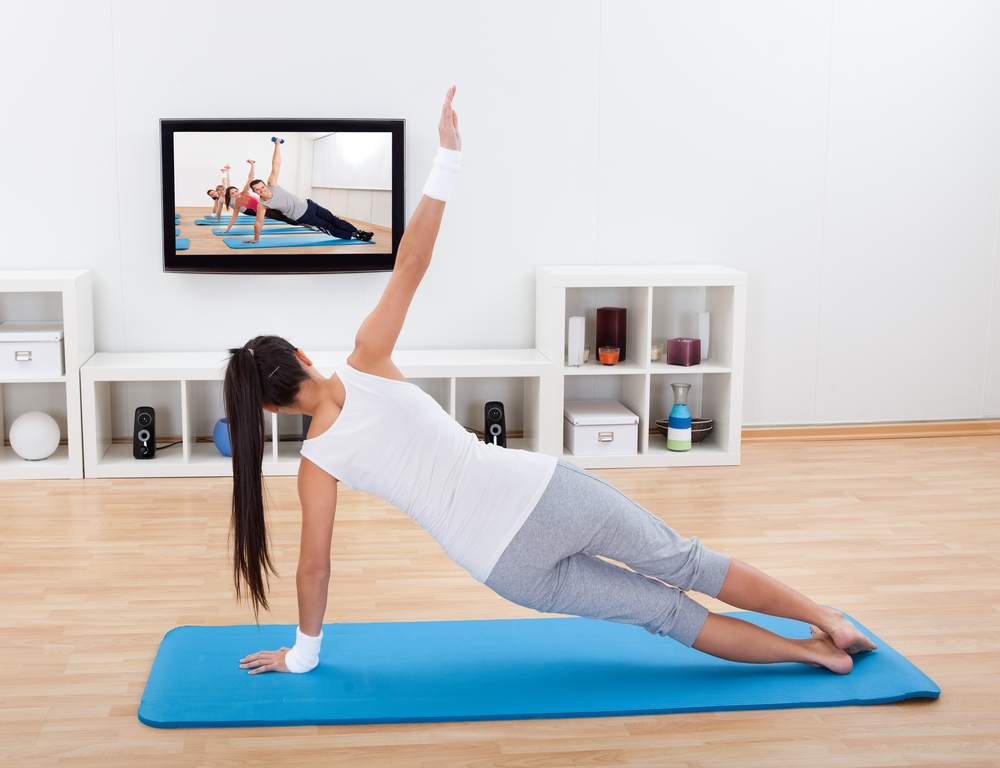Physical Exercise Using Nintendo Wii May Improve Balance and Gait in MS Patients, Study Says
Written by |

A physiotherapist-supported exercise program using Nintendo Wii may be a feasible and cost-effective way of helping people with multiple sclerosis (MS) be more physically active, researchers reported after performing a small pilot study.
While findings showed some evidence that people improved — both in terms of self-reported health, gait and balance measurements — researchers underscored that more data needs to be gathered on the intervention’s effectiveness, as the study mainly intended to determine if such a program was feasible.
Researchers at the Bournemouth University and Poole Hospital NHS Foundation Trust, both in the U.K., argued that a physical activity intervention using active gaming at home may overcome the many challenges MS patients face when attempting to be active.
Barriers to it could be physical, but psychological factors, such as fear, embarrassment, or lack of confidence, can also prevent patients from attempting to increase their activity levels. Moreover, practical aspects — such as transport and cost — can hinder people from joining interventions.
In the report, “Mii-vitaliSe: a pilot randomised controlled trial of a home gaming system (Nintendo Wii) to increase activity levels, vitality and well-being in people with multiple sclerosis,” researchers explained they used data generated in earlier Nintendo Wii studies to design an improved intervention program.
Earlier studies showed that behavior change techniques, including motivational interviews and problem solving, would likely improve the impact of an intervention. These early studies also highlighted the importance of considering the functional levels, environment, and preferences of individual patients when prescribing a Wii-based program.
The study (ISRCTN49286846), described in the journal BMJ Open, shows that among the 30 people who signed up, only two dropped out because of medical reasons. Patients either received the 12-month intervention, called Mii-vitaliSe, directly or after a six-month waiting period. Those on the waiting list group were given six months of intervention.
Patients, who had low levels of physical activity when the study began, were instructed as to the benefits of physical activity and on how to use the Wii.
During the personalized intervention, participants had access to regular support from a physiotherapist and were provided with a personal activity workbook, which aided participants in setting goals and monitoring progress, among other things.
They were also asked to keep a log to track their activity, which showed an average use of the Wii two times per week, for 27 minutes each day.
Results showed that patients who started the intervention immediately tended to report better physical activity levels, and better physical and psychological well-being. They also had numerical improvements in gait and balance.
While no severe adverse reactions were seen, participants reported pain and worsening of scar tissue after some exercises, for which they received follow-up advice and care.
The team also identified several problems or difficulties, including wrongly completed questionnaires, that will allow them to improve measurements once they launch a larger study.
“Our study is the first to report on home-based use of the Wii for people with MS in the UK. Overall, findings from this study are promising and support proceeding to a full-scale trial of effectiveness and cost-effectiveness. We will refine the trial design, aspects of the intervention and finalize outcome measures in the light of our experiences from this pilot study” the researchers wrote.


